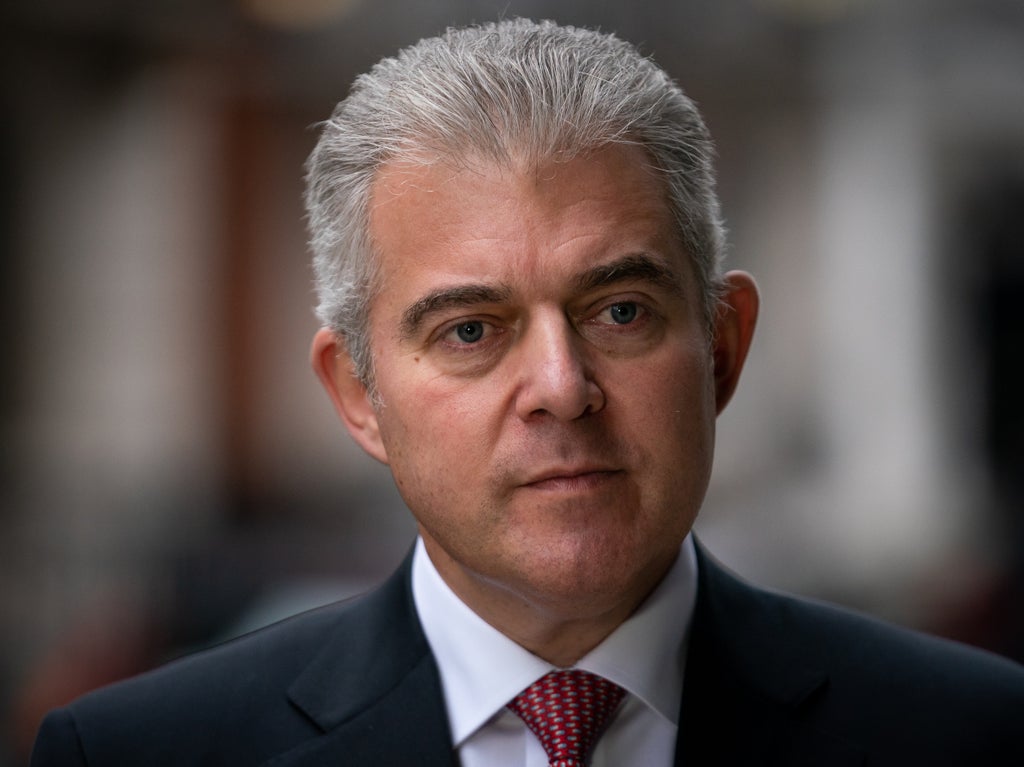
Boris Johnson’s government has revealed its controversial plan to bring in legislation to end the prosecution of veterans over Troubles-related killings and other legacy cases.
The Northern Ireland Troubles (Legacy and Reconciliation) Bill announced in the Queen’s Speech is aimed at making sure former soldiers are given immunity from criminal prosecution.
It will also see a new, independent commission set up to help families find out what happened to loved ones in cases involving former members of the security forces and ex-paramilitaries.
The government says veterans involved in hundreds of cases will be expected to provide information to the new commission – leaving open a route to prosecution if individuals do not cooperate.
Northern Ireland secretary Brandon Lewis first revealed the intention to end prosecutions last year – arguing it would help unionist and nationalist communities move “further along the road to reconciliation”.
It was met with widespread outrage from all sides in Northern Ireland. Bereaved relatives who lost loved ones during the three decades of violence made clear their opposition to an “blanket” amnesty.
The Republic of Ireland’s deputy premier Leo Varadkar welcomed the announcement that immunity for Troubles-related offences will depend on individuals co-operating with the commission.
“I think it’s good news that they’ve abandoned plans for a blanket amnesty for British soldiers and terrorists who may have been involved in crimes in Northern Ireland and elsewhere,” he told RTE radio on Tuesday.
However, Victims’ groups, including Relatives for Justice and the Truth and Justice Movement, expressed dismay at the proposals. “Victims and survivors are left behind – again,” said Relatives for Justice.
And Sinn Fein vice president Michelle O’Neill said the new approach was not the way to deal with the legacy of the Troubles. She said the way to give families closure “is not to give impunity and immunity to British serving forces here”.
Amnesty International described the government proposals as a “sinister denial of rights” – arguing they dismiss victims’ objections “and are a worrying interference in the rule of law”.
No 10 said the plans was to introduce a system where immunity is guaranteed to individuals, as long as they cooperate with the new commission. There will also be an “oral history” initiative allowing people from all communities to share their stories.
Mr Johnson’s official spokesman said: “The previous approach was not working. We believe that this will help with effective information recovery which provides answers for families and delivers on our commitments for Northern Ireland.”
The Police Service of Northern Ireland (PSNI) currently has a caseload of more than 900 Troubles-related cases involving 1,200 deaths. The PSNI has estimated it would take 20 years to work through the cases.
The Queen’s Speech did not contain any move to tear up the Northern Ireland Protocol unilaterally, but the government has made clear it will take steps to ditch checks if the EU does not agree soon.
Foreign secretary Liz Truss will reportedly move to discard large portions of the protocol – checks on all goods being sent from Britain to Northern Ireland – after giving up on Brexit negotiations with Brussels.

The Times reported that Ms Truss’ officials have drawn up draft legislation to unilaterally remove the need for checks, and is ready to announce the move on Tuesday next week.
And Mr Johnson warned the Irish premier Micheal Martin today that he was prepared to “take action” to unilaterally override the deal, calling the situation as “very serious”.
Mr Martin said he had emphasised the need to “avoid any unilateral action” in his call with Mr Johnson on Tuesday. Ms Truss is set to meet EU Commission counterpart Maros Sefcovic on Thursday.
It comes as the DUP refused to enter powersharing at Stormont until the UK government ditches the protocol, following Sinn Fein’s history election victory.
Meanwhile, the government has also set out plans for a language bill that would provide new protections for use of the Irish language in Northern Ireland, after the parties at Stormont failed to agree on measures.
The Identity and Language (Northern Ireland) Bill is aimed at enhancing the Ulster Scots tradition, as well as protecting the Irish language – with two new commissioners tasked with the delivery of each commitment.







